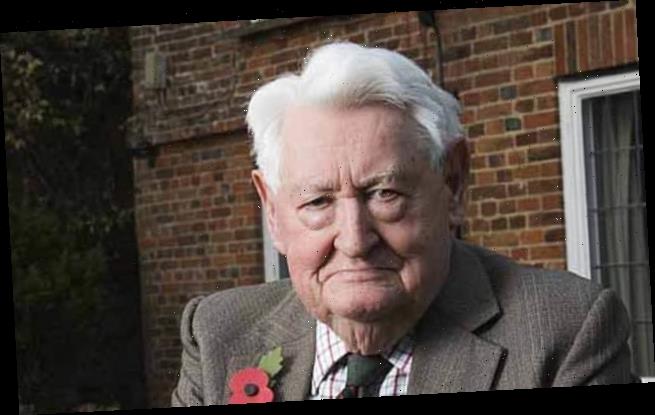OBVIOUSLY, as a white woman I am not in a position to give a view on how rife racism is within this country.
But I do have first-hand experience of how racist abuse deeply affects people.
The main conclusion of the new report by the Commission on Race and Ethnic Disparities was that family structure and social class has a bigger impact than race on how people’s lives turn out.
It also decided that the UK “no longer” has a system rigged against people from ethnic minorities.
However, it also found that while Britain is not institutionally racist, overt racism remains, particularly online. For me, there is no doubt it exists.
Now I love our country and the diverse population that makes it what it is.
But just looking at the world of football, which is my line of business, it is pretty stark.
For a start, the number of senior executives and top-level managers who are black does not reflect the society we live in.
Until it does there will not be equality.
NO ISOLATED INCIDENT
And there are still frequent and terrible cases of racism, coming mainly from people who hide behind their keyboards, buoyed up by their cloak of anonymity.
Some people want to deny that racism exists, partly because they do not want to consider the possibility that they themselves are racist.
But if people on the receiving end of abuse — including footballers — say that racism exists, then the only possible conclusion is that it does.
And it casts a pall over people’s lives. The former Arsenal player, Thierry Henry, inset, quit social media last week in response to anonymous racist bullying.
The number of senior executives and top-level managers who are black does not reflect the society we live in.
I’m sorry to say this is by no means an isolated case. I see little racism from the inside, from the people who work in football. But the racism footballers have to deal with on social media and inside the stadium is horrific.
In February, for example, Manchester United player Anthony Martial was racially abused on Instagram after his side’s 1-1 draw at West Brom.
That was the second time in three weeks that he had been targeted and his clubmates, Marcus Rashford, Axel Tuanzebe and Lauren James have also suffered abuse recently, as have Chelsea players Antonio Rudiger and Reece James, Swansea’s Yan Dhanda, West Brom’s Romaine Sawyers and young Southampton prospect Alex Jankewitz.
One in ten football matches in the 2019-20 season had an incident of hate crime in England and Wales.
And the number of arrests for racist or indecent chanting more than doubled from 2018-19 to 2019-20, even though hundreds of matches during the second half of the season were cancelled or played behind closed doors due to the pandemic.
During just the final six weeks of last season, a joint PFA and Signify study of online content identified more than 3,000 abusive messages aimed at Premier League players, 56 per cent of which were racist.
Of the players surveyed, 43 per cent said they had experienced targeted racist abuse.
If you have not been on the receiving end of this kind of hatred and vitriol, it is very easy to turn a blind eye to it. But the effect this has on people is long lasting.
It is tempting to shrug it off or ignore it, but words are powerful and they can hurt. As Marcus Rashford put it, it is “humanity and social media at its worst”.
Anyone tempted to declare that there is no institutional racism in the world of football should try telling that to the players when the racial abuse they get is more or less constant.
I hope this will lead to positive changes. The pressure is mounting on Twitter, Instagram and other platforms to do more to stop the hateful messages.
Another idea apparently gaining traction is ending anonymity on social media so that racists can be tracked down, which seems to make perfect sense.
In the meantime, the most important thing we can do is not to deny that this is a real and present issue.
We need to keep talking about it and making people realise when they send hateful, spiteful and disgusting messages that it’s a reflection of them and who they are, and not the recipient.
In an ideal world racism would not exist in the first place but, as long as it does, there must be consequences.
Football executives need to adopt a zero-tolerance approach to fans who are openly racist online or at the stadium — we do at West Ham United.
If fans are denied the chance to watch the players and matches they love, then it will make them think twice before being openly racist.
Sharon not sexy enough? What a Stone-age attitude
ISN’T it incredible to hear Sharon Stone’s revelation that her manager told her she was not “f**kable” just six weeks before she landed the lead in 1992 thriller Basic Instinct.
Writing in her new autobiography, The Beauty Of Living Twice, the actress, 63, admitted she was “shy and introverted” at the start of her career.
And her Hollywood agent told her that she wouldn’t be hired as she wasn’t “sexy”.
Clearly, the man must have needed glasses! And what are the odds that he himself looked a right old state – but still felt content to comment on what she looked like, and to assess and rate her on a “f**kability” scale.
Thank God attitudes to women are changing.
Salute female force
DID anyone else watch The BBC show The Detectives: Fighting Organised Crime?
It told the story of Luke Graham, 31, who was shot dead on a residential road by gang member Wade Cox. It happened in Ashton-under-Lyne on June 13, 2018, after a drug turf war spilled out on to the street.
CCTV footage that was shown on the BBC2 documentary, which was filmed with Greater Manchester Police over two years, captured the terrifying moment Graham was shot – with children playing nearby just moments before.
What was remarkable to me is that the detectives were led by an incredible team of high-ranking female officers who spend their days investigating criminal gangs and organised crime groups, the likes of which are way more terrifying than any TV drama.
I take my hat off to this crack team of women who clean up the streets and tackle these criminals head-on.
Thanks litter fairy
AND welcome back to winter, after that glor-ious three-day summer we had this week.
On Tuesday, when it was hot, I took my dog for a walk in Hyde Park, which was absolutely packed. Two things shocked me.
Firstly, the amount of alcohol being consumed, and secondly the number of people queueing (in orderly fashion, with two-metre distancing) to pee behind a bush. There was also plenty of rubbish.
At 11am, the following morning when I went back to the park, the rubbish was completely cleared. It looked as if nothing had happened.
Something tells me that the party people had not done the clear-up so there is only one conclusion – it must have been the litter fairy.
Agnes a living legend
TO mark Holocaust Remembrance Day this coming Thursday, I was asked to take part in March Of The Living.
This was to be a 3km walk by survivors from Auschwitz to the gas chambers where millions of Jews were murdered.
The number of survivors is declining every year. And, with international travel not possible because of Covid, March Of The Living can’t happen in Auschwitz.
So I met Agnes Kaposi, who was born in Hungary in 1932, in London’s St James Park to hear her incredible story. Agnes and her family were among 86 people travelling in a cattle truck for five nights without food, water or sanitation to Auschwitz.
But their train was diverted to Strasshof and they were among 15,000 “exchange Jews” sent to work as slave labourers in Austria. Agnes describes it as lucky and one of the reasons she is alive today.
ESCAPED TO UK
By most standards this would not be considered lucky as she became a child labourer.
Hearing about the brutality Agnes experienced was shocking. She was put to work clearing bomb damage, often fearing for her life and starving.
Eventually, Agnes and her family walked back to Hungary through war-torn Austria and Slovakia. They found their home had been confiscated and Hungary was under a Stalinist regime.
Amazingly, Agnes returned to school and graduated with honours in electronic engineering from the Technical University of Budapest.
She married and escaped with her husband John to the UK in 1956, where she had two daughters and gained her PhD.
To-do list can do one
HAPPY Easter! And also, happy birthday to me.
Not to feel too sorry for myself but today is my second lockdown birthday and let’s just say it is going to be a low-key day.
I may not be able to celebrate with the friends and family I am missing so badly, so instead I am going to make a virtue of lockdown.
This weekend I will mostly be lolling about eating chocolate, having lie-ins and enjoying a glass of wine or two.
Normally, I’m most definitely a doer and often to be found crossing things off my to-do list on a weekend.
Guilt-free four-day weekends come but once a year, however, and this Easter I’m determined to just enjoy it and let the to-do list take care of itself – and I sincerely hope that you can do the same.
She had a career as a lecturer and researcher and become a fellow of the Royal Academy of Engineering. Now retired, she and her family live in London. Agnes accompanied a group of young people on March Of The Living to Poland this week to retell her story.
As long as she can remind the world about the Holocaust, hopefully the human race will never let this happen again.
Her story is incredible, as is she. We must never forget the past.
GOT a story? RING The Sun on 0207 782 4104 or WHATSAPP on 07423720250 or EMAIL [email protected]
Source: Read Full Article









